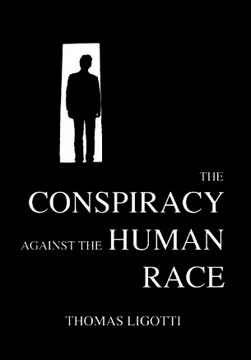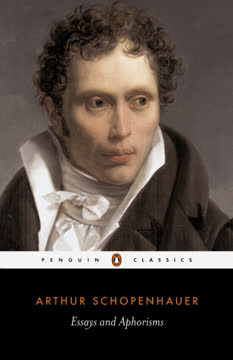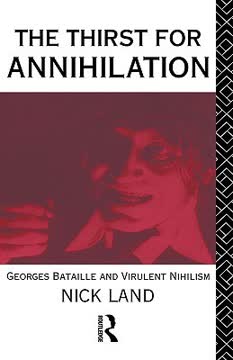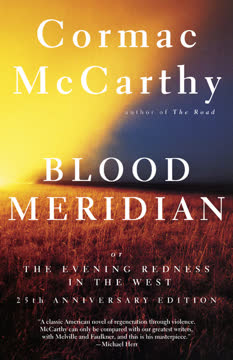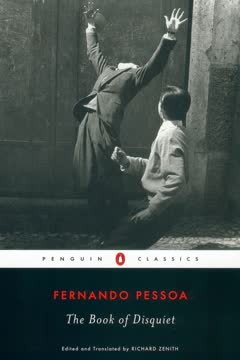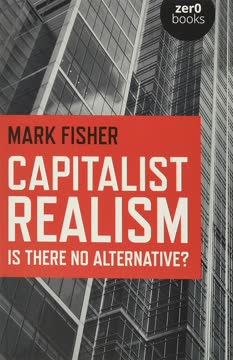Key Takeaways
1. Consciousness is a Tragic Biological Blunder.
Life had overshot its target, blowing itself apart.
Evolutionary misstep. Consciousness, unique in its intensity in humans, is not a gift but a catastrophic error of blind nature. It represents a "breach in the very unity of life," arming us with a spirit that is both powerful and a menace to our own well-being. This damning surplus of cognition separates us from the rest of creation, which exists without awareness of its condition.
Expelled from paradise. Unlike other organisms rooted in matter and governed by blind laws, consciousness allows us to see ourselves and our vital processes as strangers. We are unbidden guests in nature, having lost our right of residence in the universe after eating from the Tree of Knowledge. This awareness curses our might, purchased at the cost of inner peace and innocence.
Source of all horrors. The evolution of consciousness is the "parent of all horrors." It makes us susceptible to startling and dreadful thoughts that are never fully balanced by reassuring ones. This inherent imbalance necessitates constant effort to artificially limit the content of consciousness to prevent widespread madness or extinction.
2. Humanity is a Paradoxical Being.
As conscious beings, we must hold back that divulgement lest it break us with a sense of being things without significance or foundation, anatomies shackled to a landscape of unintelligible horrors.
Contradictory nature. Consciousness has forced us into a paradoxical position: we strive to be unself-conscious of what we fundamentally are – "hunks of spoiling flesh on disintegrating bones." We are uncanny things, divided from the rest of creation, embodying a contorted logic.
Living a lie. To survive, we must run a confidence trick on ourselves, hoping we don't catch on to the monkey business that would strip us bare before the silent, staring void. This self-deception is not a choice but a necessity imposed by our conscious nature. We are prevaricators who must hide flagrantly joyless possibilities from ourselves.
Unreality on legs. We are "unreality on legs," things without significance or foundation. Our existence is a paradox because we must deny our true nature to continue existing. This makes us akin to the undead or human puppets – beings that should not be, yet are.
3. We Employ Defense Mechanisms Against Reality.
Most people learn to save themselves by artificially limiting the content of consciousness.
Shielding the mind. To prevent consciousness from overwhelming us with a clear vision of suffering and meaninglessness, humanity employs defense mechanisms. These are artificial limitations on consciousness, necessary for survival and social adaptability.
Zapffe's four strategies:
- Isolation: Relegating dire facts to a remote mental compartment, denying their existence in a conspiracy of silence.
- Anchoring: Stabilizing life in metaphysical or institutional "verities" like God, Morality, Country, Family, which provide a false sense of safety and authenticity.
- Distraction: Keeping the mind unreflective of horrors by focusing on trifling or momentous trash, demanding constant engagement with external stimuli.
- Sublimation: Recycling demoralizing aspects of life into stylized art or philosophy, providing escape through bogus simulation of suffering.
Necessary self-deception. These mechanisms are not just individual quirks but are "enmeshed in repressional mechanisms, social and individual," traceable even into the tritest formulas of everyday life. They are "useful fictions" or "positive illusions" that support both individual well-being and societal functioning, preventing us from scrutinizing the startling and dreadful truths of existence.
4. Existence is Malignantly Useless.
Life, in Ligotti’s outsized stamp of disapproval, is MALIGNANTLY USELESS.
Beyond worthlessness. The term "useless" is preferred over "worthless" because "worthless" still implies concepts of desirability and value, which are irrelevant to existence itself. "Useless" better captures the lack of inherent purpose or justification for anything that exists.
No self-justification. Nothing in existence is self-justifying. Everything is justified only in a relative, "potato-masher sense" – useful only for a specific, limited purpose within a fabricated framework. Unlike religious or secular beliefs that posit absolute value, existence itself has none.
A cosmic blunder. From a pessimistic viewpoint, existence is a "contrivance of horror," a "rank failure," a "cesspool of the solar system." It is a state of "demonic mania," a "blind pressure" or "tendency entirely without ground or motive." The universe appears as a "dark universe yawning where the black planets roll without aim."
5. The Self and Free Will are Illusions.
You cannot know what you really are because then you would know there is nothing to know and nothing to know it.
Fabricated identity. The sense of being or possessing a "self" is an intangible entity, an illusion manufactured by the brain. We are not persons but "phenomenal self-models," mechanistically functioning systems that simulate a person for existential expediency.
Puppet nature. Determinism suggests that we are not self-made individuals making choices, but rather individuals whose choices are the result of determining forces beyond our control. This turns the human image into a "puppet image," a hallmark of pessimism.
Unknowable truth. We cannot detect the self-models because we see through them. Knowing our true nature as "no one" is "practically impossible" due to inbuilt perceptual manacles that keep our minds in a dream state, preventing us from knowing that there is nothing to know and nothing to know it.
6. Suffering is the Core of Existence.
Human suffering will remain insoluble as long as human beings exist.
Fundamental reality. Suffering is not merely an aspect of life but its fundamental reality. Unlike pleasure, which is seen as limited and often just the cessation of desire, pain is real and pervasive.
Beyond particular pains. Pessimism focuses not just on particular sufferings and their relief, but on suffering itself as an insoluble problem inherent to conscious existence. Remedies for specific diseases or social ills are merely stopgaps.
A sickness unto death. As a survival-happy species, our primary aim is longevity, with suffering reduction being incidental. We are sick with the desire to stay alive under almost any circumstances, demonstrating a morbid dread of death, while our fear of suffering is deficient.
7. Optimism is a Wicked and Delusional Lie.
Optimism, where it is not merely the thoughtless talk of those who harbor nothing but words under their shallow foreheads, seems to me to be not merely an absurd, but also a really wicked, way of thinking, a bitter mockery of the most unspeakable sufferings of mankind.
A moral offense. Optimism is viewed as a "wicked way of thinking" because it mocks the immense suffering of conscious beings by insisting that "being alive is all right." It is a "feculent" insistence that we must imagine ourselves happy despite the absurdity and horror of existence.
Undeclared policy. Optimism is not a reasoned philosophy but an "undeclared policy of human culture," growing out of animal instincts to survive and reproduce. It is the "default condition of our blood" and cannot be effectively questioned by the mind or pain.
Pressure to conform. Those who dissent from the common conviction that "being alive is all right" are chastised, patronized, and pressured to conform. Pessimists are seen as maladaptive and their views are dismissed as pathological or wrongheaded, ensuring the conspiracy of optimism continues.
8. Supernatural Horror Reflects Our Uncanny Nature.
Without death—meaning without our consciousness of death—no story of supernatural horror would ever have been written, nor would any other artistic representation of human life have been created for that matter.
Mirror of the uncanny. Supernatural horror fiction, with its themes of the undead, alien entities, and violations of natural law, reflects our own uncanny nature as paradoxical beings. It is a "contrivance of horror" that mirrors the horror of our own existence.
Atmosphere of dread. The atmosphere in horror stories, suggesting ominous states beyond comprehension, is the literary counterpart to the pessimistic sense of something pernicious behind the scenes of life. It evokes a feeling of "illimitable frightfulness" and cosmic misrule.
Sublimation of terror. Supernatural horror serves as a form of sublimation, allowing us to entertain ourselves with simulated horrors that are unreal and harmless, thereby providing an escape from real-life suffering and the terror of our own mortality and uncanny nature. It is a way to live with our "double selves."
9. Ego-Death Offers a Glimpse Beyond the Self.
The experience of living without a personal identity, without an experience of being somebody, an “I” or a “me,” is exceedingly difficult to describe, but it is absolutely unmistakable.
Dissolution of identity. Ego-death is a state where the subjective sense of being a discrete "self" dissolves, leaving an individual without a personal identity or the experience of being somebody. This state is rare and often occurs unexpectedly, sometimes following physical trauma or near-death experiences.
Beyond the vanity. In ego-death, the "ego, the attachments I had, my history, and who I had been" are obliterated. Personality is revealed as a "vanity, an elaborate delusion, a ruse." The mind, body, and emotions continue to function, but they no longer refer to anyone; there is "no one who thought, no one who felt, no one who perceived."
A compromise with being. While ego-death might seem an "optimum model" for human existence, liberating one from the suffering caused by the ego, it is still a "compromise with being." It does not eliminate existence itself, which is the ultimate source of suffering.
10. Extinction is the Only Rational Solution.
Know yourselves—be infertile and let the earth be silent after ye.
Ending the suffering. Given that consciousness is a tragic blunder, existence is malignantly useless, and suffering is inherent to conscious life, the only logical and humanitarian conclusion is the voluntary self-extinction of the human race. This would eliminate both present and future suffering.
A benevolent act. Ceasing reproduction is seen as a benevolent act for the good of the unborn, sparing them entry into a world of inevitable suffering and self-deception. It is a "pain-free" way to harmonize humanity with its biological predicament.
An impossible hope. Despite its logical coherence from a pessimistic standpoint, the idea of humanity willingly ceasing to exist is presented as a hopeless prospect. The ingrained instincts for survival and reproduction, coupled with the pervasive self-deception of optimism, make collective self-administered oblivion practically impossible.
Last updated:
FAQ
What is The Conspiracy Against the Human Race by Thomas Ligotti about?
- Philosophical pessimism focus: The book explores the idea that human existence is fundamentally tragic and undesirable, rooted in a surplus of consciousness that causes suffering.
- Human consciousness as a curse: Ligotti argues that self-awareness separates humans from nature, forcing us to confront mortality, suffering, and meaninglessness.
- Supernatural horror connection: The book links philosophical pessimism with supernatural horror, using uncanny phenomena as metaphors for the paradox of human existence.
- Call for extinction: Ligotti ultimately suggests that voluntary extinction may be the only rational response to the suffering consciousness entails.
Why should I read The Conspiracy Against the Human Race by Thomas Ligotti?
- Unique blend of philosophy and horror: The book offers a rare, uncompromising exploration of pessimism, challenging optimistic worldviews and traditional beliefs about life’s value.
- Insight into human psychology: Ligotti analyzes how humans use defense mechanisms to cope with existential dread, deepening understanding of self-deception and illusion.
- Critical examination of belief systems: The book critiques religion, science, and culture for masking life’s harsh realities, encouraging readers to confront uncomfortable truths.
- Stimulates existential reflection: It invites readers to question the meaning of life, the nature of self, and the possibility of liberation or extinction.
What are the key takeaways from The Conspiracy Against the Human Race by Thomas Ligotti?
- Consciousness as a curse: Human self-awareness is portrayed as an evolutionary blunder that brings suffering and existential horror.
- Defense mechanisms for survival: People use strategies like isolation, distraction, anchoring, and sublimation to limit awareness of life’s horrors.
- Supernatural horror as metaphor: Horror literature is used to symbolize the uncanny and the horror of existence, reflecting the paradox of being conscious beings.
- Voluntary extinction as rational: Ligotti suggests that ending the cycle of suffering through voluntary extinction is the only logical response, though humanity resists this truth.
How does Thomas Ligotti define and explore philosophical pessimism in The Conspiracy Against the Human Race?
- Pessimism as central theme: Ligotti builds on thinkers like Zapffe and Schopenhauer, arguing that human existence is fundamentally tragic and absurd.
- Critique of optimism: The book challenges common beliefs and illusions that make life seem worthwhile, exposing their role in masking suffering.
- Existential horror: Ligotti connects pessimism to the horror genre, showing how both confront the bleakness and futility of life.
- Call for honest confrontation: He urges readers to face the reality of suffering and meaninglessness, rather than relying on comforting illusions.
What is the "nightmare of being" in The Conspiracy Against the Human Race by Thomas Ligotti?
- Existential dread of consciousness: The "nightmare of being" refers to the profound horror and alienation that arise from human self-awareness of mortality, suffering, and meaninglessness.
- Biological paradox: Humans are uniquely burdened by the knowledge of their own insignificance and the futility of existence.
- Necessity of self-deception: To survive this nightmare, people must repress or distort their awareness, maintaining illusions that life is worthwhile.
- Psychological burden: This state creates a psychological weight that is unique to humans and central to Ligotti’s argument.
What are Zapffe’s four defense mechanisms as discussed in The Conspiracy Against the Human Race by Thomas Ligotti?
- Isolation: Denying or suppressing awareness of life’s harsh realities to protect oneself from existential dread.
- Anchoring: Relying on metaphysical, religious, or social certainties to create a sense of stability and meaning.
- Distraction: Engaging in trivial or absorbing activities to avoid confronting the horror of existence.
- Sublimation: Transforming suffering into art, philosophy, or other creative outlets as a way to cope with consciousness.
How does The Conspiracy Against the Human Race by Thomas Ligotti analyze the role of supernatural horror literature?
- Atmosphere as key element: Ligotti emphasizes that supernatural horror uses atmosphere to symbolize the ineffable horror of existence.
- Uncanny as metaphor: The supernatural is portrayed as a metaphor for alienation from nature and the awareness of death.
- Literary evolution: The book traces horror’s development from Gothic landscapes to Lovecraft’s cosmic horror, showing how literature reflects existential themes.
- Dissolution of self: Horror stories often focus on the loss of identity and confrontation with the uncanny, mirroring the book’s philosophical concerns.
How does Thomas Ligotti relate Buddhism to philosophical pessimism in The Conspiracy Against the Human Race?
- Buddhism as pessimism: Ligotti argues that Buddhism, like philosophical pessimism, centers on suffering (dukkha) as the primary reality of existence.
- The wanting paradox: He highlights the Buddhist paradox that the desire to end suffering perpetuates it, mirroring the inescapable nature of human suffering.
- Diversity of beliefs: The book notes the complexity and diversity within Buddhism, especially regarding concepts like no-self and reincarnation.
- Enlightenment’s rarity: Ligotti points out that true enlightenment or ego-death is extremely rare and often accidental, challenging the promise of a clear path out of suffering.
What is the "wanting paradox" in The Conspiracy Against the Human Race by Thomas Ligotti?
- Definition: The "wanting paradox" is the idea that the desire to end suffering actually ensures its continuation, as wanting itself is a form of suffering.
- Relation to consciousness: Consciousness creates desires and attachments, trapping individuals in cycles of suffering.
- Comparison to Zapffe’s paradox: Ligotti compares this to the paradox of consciousness, where awareness of life’s joylessness cannot be resolved.
- Implications for enlightenment: The paradox suggests that liberation cannot be attained through effort or desire, making it an elusive state.
Who are the key figures related to ego-death and enlightenment in The Conspiracy Against the Human Race by Thomas Ligotti?
- U. G. Krishnamurti: Experienced ego-death after a clinical death, living without self-awareness and rejecting spiritual doctrines.
- John Wren-Lewis: Awoke enlightened after a near-death experience, viewing ordinary consciousness as a malfunction.
- Suzanne Segal: Lived for years without personal identity after a meditation experience, describing a sense of "vastness" but also suffering distress.
- Significance: These cases illustrate that ego-death and enlightenment are rare, often accidental, and not easily replicable through spiritual practice.
What is the "conspiracy against the human race" as described by Thomas Ligotti?
- Definition: The "conspiracy" is the collective self-deception and denial by humans of the true nature of existence—suffering, the curse of consciousness, and inevitable death.
- Mechanisms of denial: Society uses isolation, distraction, anchoring, and sublimation to limit awareness and maintain the fiction that life is worthwhile.
- Resistance to extinction: Despite philosophical arguments for voluntary extinction, humanity continues to affirm life due to biological and social pressures.
- Survival mechanism and suffering: The conspiracy helps people survive but also perpetuates ongoing suffering by preventing honest confrontation with reality.
What are the best quotes from The Conspiracy Against the Human Race by Thomas Ligotti and what do they mean?
- "Life, in Ligotti’s outsized stamp of disapproval, is MALIGNANTLY USELESS." This encapsulates the book’s thesis that existence is not just meaningless but actively harmful and futile.
- "We are paradoxical beings whose continuance only worsens their plight." This highlights the contradiction of human consciousness: aware of suffering yet compelled to live and reproduce, deepening existential tragedy.
- "None of us wants to hear spoken the exact anxieties we keep locked up inside ourselves." This reflects the social repression of existential dread and the collective conspiracy to maintain illusions about life’s worth.
- Quotes as insight: These lines distill Ligotti’s core arguments about the horror of consciousness and the mechanisms of self-deception.
Review Summary
The Conspiracy Against the Human Race is a philosophical work exploring pessimistic ideas about human existence. Readers find it thought-provoking, well-written, and darkly humorous, though some consider it exasperating or unreadable. Ligotti argues that consciousness is a burden, life is inherently meaningless, and non-existence may be preferable. The book draws on various philosophers and horror writers to support its bleak worldview. While many appreciate its intellectual rigor and unique perspective, others criticize its repetitiveness and extreme pessimism.
Similar Books
Download PDF
Download EPUB
.epub digital book format is ideal for reading ebooks on phones, tablets, and e-readers.
